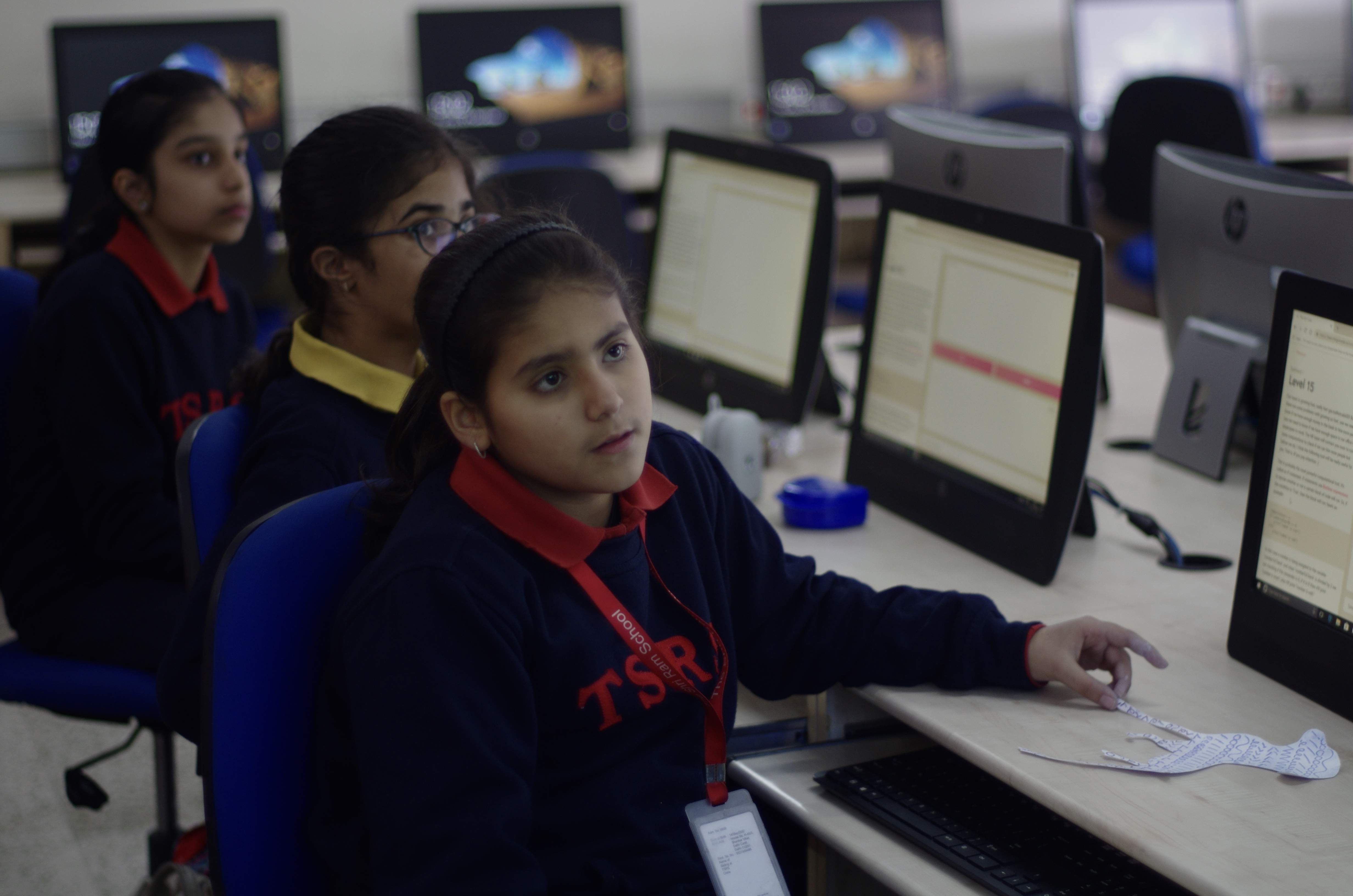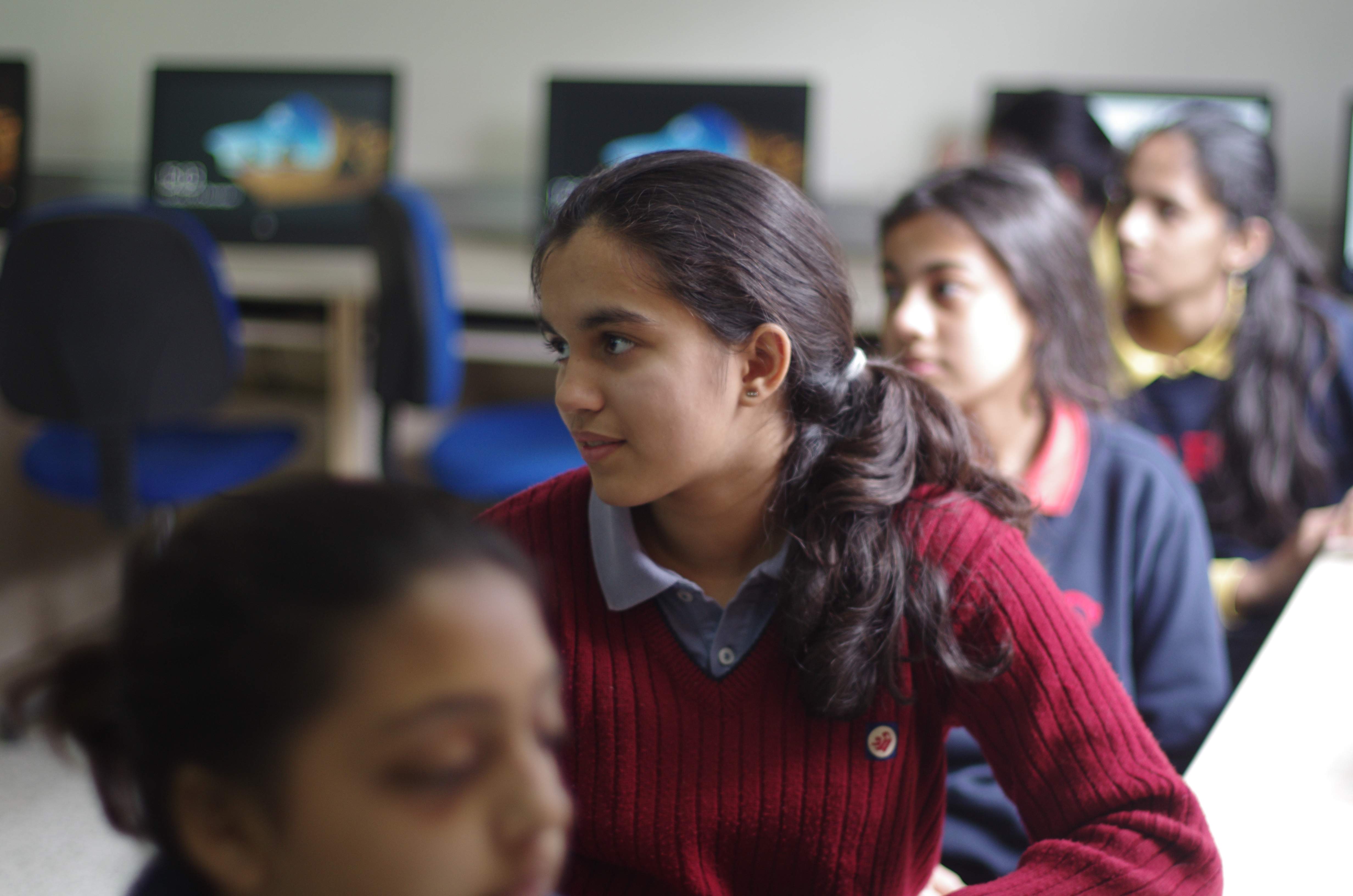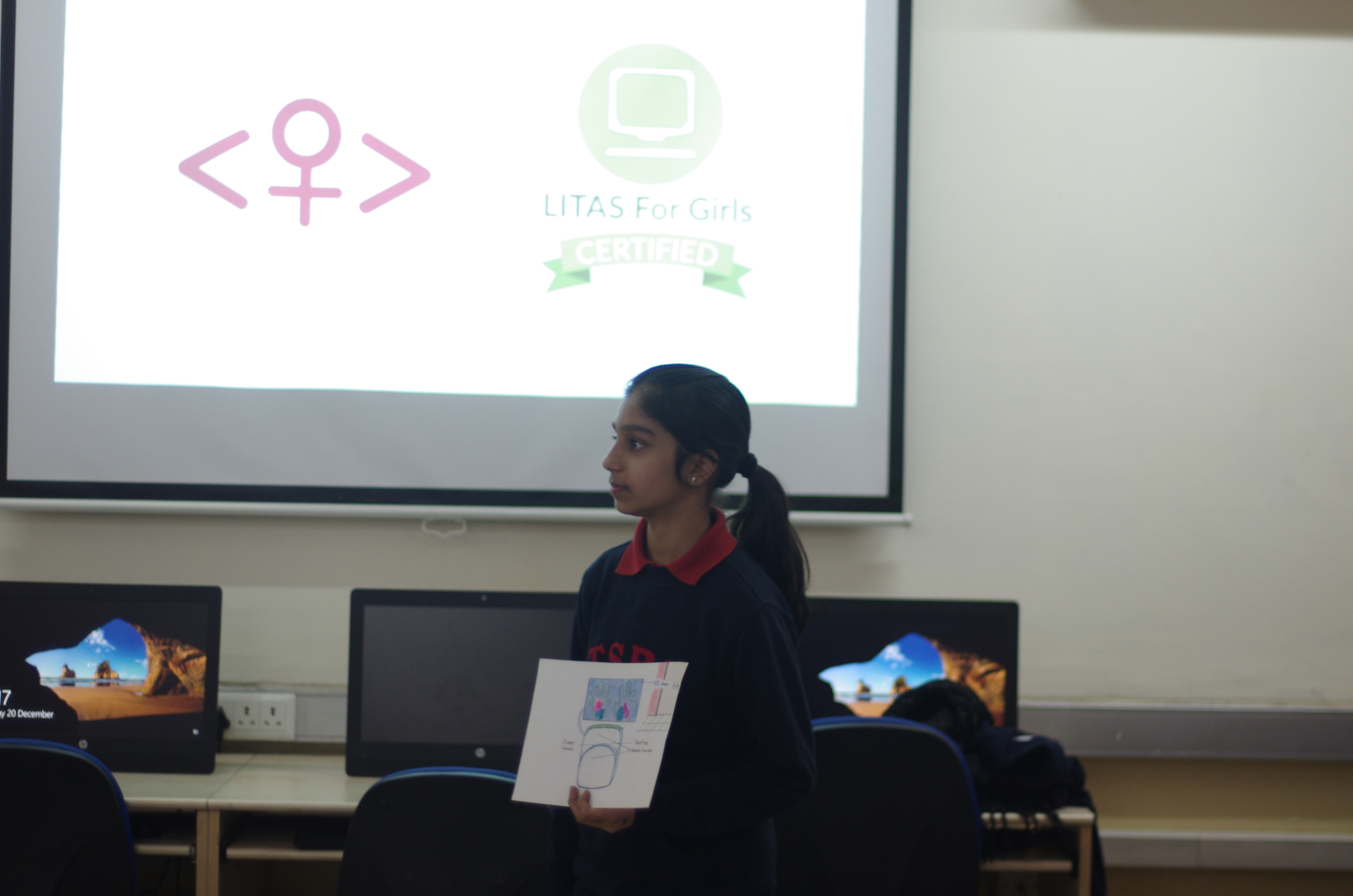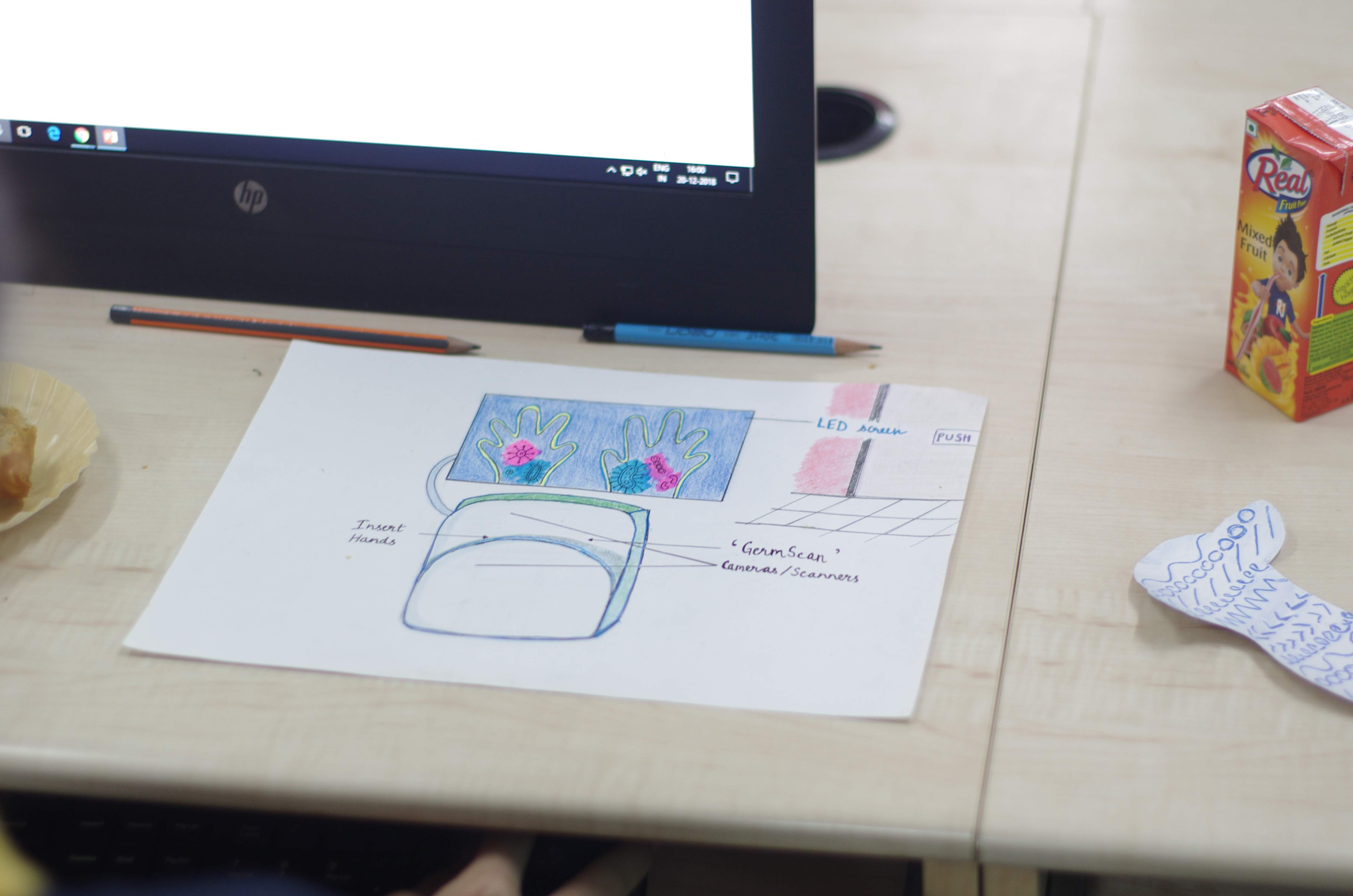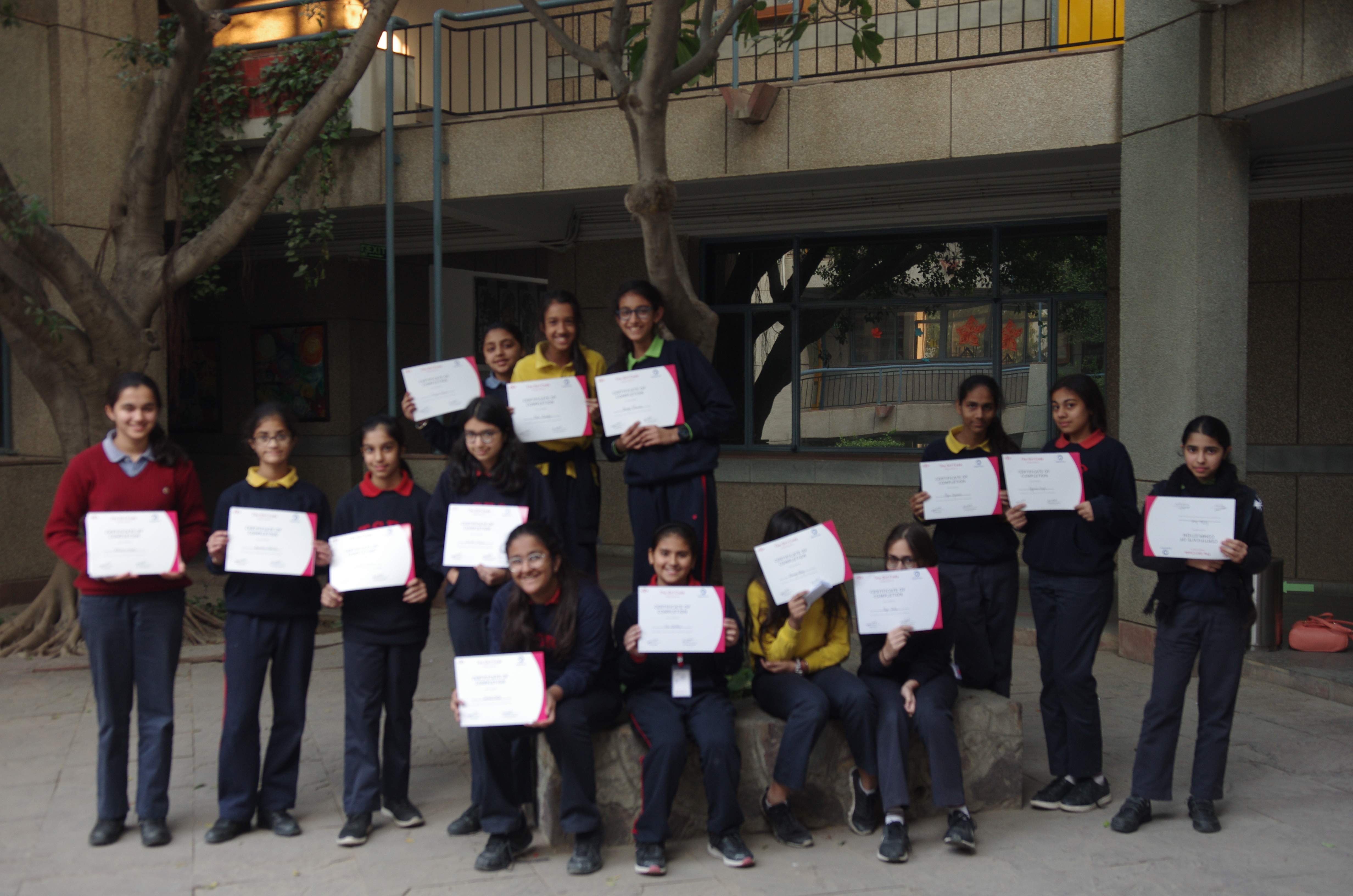We are excited to share that the LITAS Certified program, The WeCanToo program, successfully completed its first ever summer session! The program was three weeks long, with one additional meeting. It aimed at teaching middle and high school girls how to code and build their own websites.

LITAS For Girls is a 501(c)(3) nonprofit that aims to inspire middle school girls to pursue careers in STEM. LITAS aims to mold girls to be the next generation of leaders in CS+STEM, with both the creativity to come up with game-changing ideas and the skills to implement them.
By teaching teamwork, brainstorming, and presentation skills alongside computer science, LITAS programs build confidence in girls and prepare them for a future in STEM fields.
The program was organized by Khushi Gupta, Aarya Dharm, Leela Banerjee, Donna Prince, and Lily Baker, all rising seniors in Dublin High.
Twelve girls ranging from 6th to 10th grade participated in building their first ever website using HTML, CSS, Bootstrap, and GitHub every weekend for two-hours sessions. The program featured guest speaker Hannah Shimoga, intern at Cisco.
Additionally, the girls learned essential skills to prepare them for the competitive STEM environment. The program concluded successfully with a miniature competition in which the best website was voted for by both the organizers and the participants.

In an exclusive talk, Khushi Gupta, organizer of the program, shares experiences and insights with LITAS students.
To start with, tell us a little bit about yourself - what school and grade are you currently in? What are some of your hobbies and interests?
I am a senior in Dublin High currently. Some of my hobbies include art, jewelry making, graphic design, reading, and dance. I am passionate about computer science engineering and electrical engineering.
What motivated you to start your program promoting young women in STEM?
I wanted to start my program because of the disparity I noticed in my own classrooms. Many of the males in my engineering classes had already participated in some workshops before and understood the basics of coding before even taking the class, while many girls in my class were learning to code for the first time. This gave the boys in my class the upper hand and allowed them to have more involvement in group projects because they just knew more. I wanted to change this for the upcoming batches, teaching females early on aspects of coding so that they too can be better prepared for future engineering courses.
What was the top thing you learned from running a LITAS program?
The top thing I learned from running a LITAS program is that just because you know more than another does not mean you cannot learn from them. While teaching the girls HTML and CSS, I learned more about these languages myself, troubleshooting problems I didn't know could occur. I even learned new styling tags from the girls who added new features to their websites. I had expected this program to be me just teaching concepts I thought I already understood, but instead I found myself learning alongside the participants, better understanding communication skills, and building relationships.
Who is your female role model, in tech or otherwise?
My female role model is Aviva from the children's television show, Wild Kratts. Aviva is the tech savvy girl who controlled the Tortuga (their aircraft) and made the creature power suits. I remember as a child watching her create the creature power suits for a variety of animals, fix malfunctions on the Tortuga, and do other amazing things. As a young girl she inspired me to work on technology so, at that time, I could create my own creature power suits, but now she continues to inspire me to have a positive impact on the world using engineering.
What is your dream career, or area you'd like to make an impact in the future?
My dream career would be to start my own company/organization. I would like to make an impact for women in STEM and normalize females in more dominant positions in the tech industry.
One message you'd like to send to other girls of your age who are considering a future in STEM, but are unsure if it's for them?
I was once in your shoes. I didn't think STEM would be the right match for me. But the workshops I did and the more programs I participated in, the more in love I found myself with STEM. So, if there is one main message I would like to give, it's this, ‘don't lose opportunities.’ Always be open minded to whatever may come because you never know, that workshop on Python may lead you to your future career as a software developer. And if an experience didn't click with you, that's okay, STEM is a large field that is continuously growing, so just keep searching.

Watch this space for more of our upcoming student chapters and programs.
Stay Safe!



